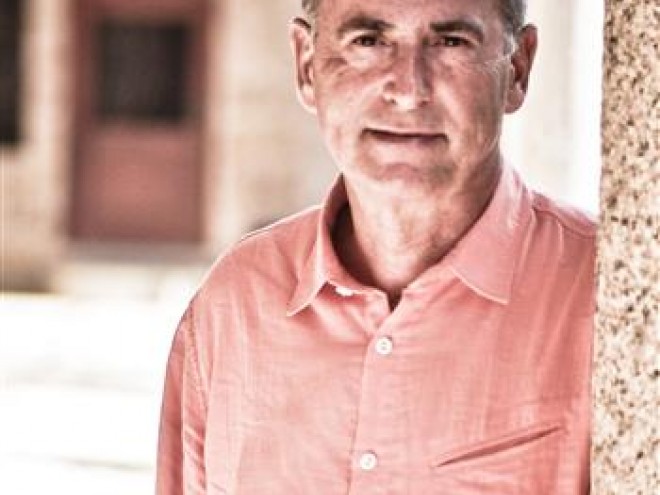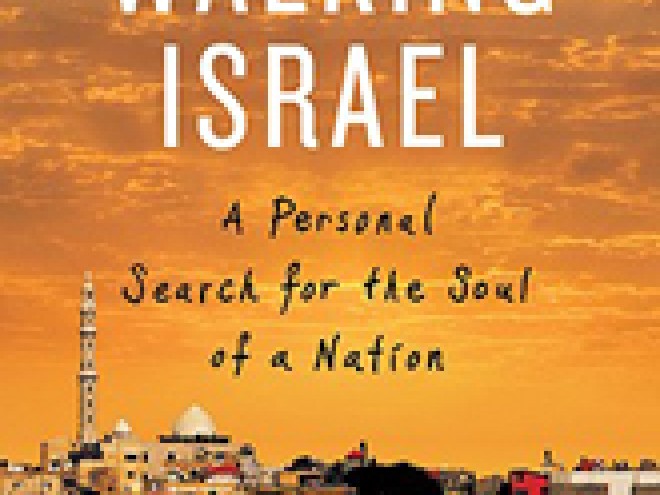Jacob’s Oath explores the aftermath of the Holocaust in Germany by examining broad themes of love, revenge, loss, and home, as well as how, for survivors, the present can be constantly overshadowed by the past.
Martin Fletcher structures Jacob’s Oath around the lives of two characters, Jacob Klein and Sarah Kaufma. The reader is introduced to Jacob in Bergen-Belsen in April, 1945 when he recognizes Hans Seeler, the SS guard who was responsible for his brother Maxie’s death. In turn, the reader is introduced to Sarah one week later in Berlin, where she has been living in hiding, shortly before she is brutally raped by a Russian soldier. From these cruel beginnings, Fletcher traces Jacob and Sarah’s journeys back to Heidelberg. Jacob returns to Heidelberg in an attempt to keep his promise to avenge his brother’s death, while Sarah returns in an attempt to keep a promise to meet her husband Josef Farber there if they were to both survive the war. By juxtaposing the characters of Jacob and Sarah, Fletcher examines the experience of being in a concentration camp versus the experience of living in hiding, the wartime fears and experiences of a man versus those of a woman, and the motivation to return to one’s home in attempt to seek revenge or because of love.
In Hiedelberg, Jacob and Sarah become lovers, however their life together is shaped by the weight of Jacob’s promise and the secrets
in Sarah’s past. Notably, Jacob’s and Sarah’s experiences of returning to the houses that their families lived in to find them both occupied by non-Jewish residents highlights the impossibility for Jewish survivors to truly return home, physically, but also in terms of the fabric of the community and familial structures that were irrevocably torn apart. Fletcher’s description of Jacob holding the ledger of his father, who was a prominent tailor in the community, in which the names of all of his clients are listed is particularly affecting. Intertwined with Jacob and Sarah’s story is the story of a group of Jewish Avengers who seek out and kill Nazis.
By layering the experiences and motivations of multiple characters, Fletcher asks important and painful questions in Jacob’s Oath about the nature of post-war vengeance, the impossibility of returning to prewar life, the cruelties of war, the legacies of trauma, and the complexities of survivors’ attempts to rebuild their lives and start again.
Interview
Martin Fletcher is the author of four books, most recently Jacob’s Oath. A five-time Emmy-winning television news correspondent who has worked for decades as the NBC News Bureau Chief in Tel Aviv, he is currently a Special Correspondent for NBC News.
Sarah Shewchuk: Martin, your first two books are works of non-fiction that examine contemporary events in your own life, namely your career as a television news correspondent in Breaking News and a walking trip that you took down the length of Israel’s coastline in Walking Israel: A Personal Search for the Soul of a Nation. In turn, your two most recent books, The List and Jacob’s Oath, are works of fiction that explore the Holocaust and its aftermath. Why did you choose to use fiction as the lens through which to examine the past?
Martin Fletcher: I did so much research for the two novels that I could probably have written them as non-fiction. But in these novels I wanted to reach something you can rarely tap into in non-fiction, namely, what was it like to be that person? To experience those dilemmas? To meet those challenges? I wanted to enter the hearts and minds of the characters, not just to tell their stories, which is what I do as a journalist. As a novelist I hoped to take the reader not only on the external journey, but the internal journey. It’s actually a very hard thing to do and I can only hope I managed it. When I started out I thought it would be easier: I can just make it up! But it doesn’t work that way, every nuance and development and action must have its own relentless logic or it won’t work, and that takes the writer into uncharted territory. Each character takes over his own story. I loved the process.
SS: How have your experiences as a television news correspondent impacted your choices as a writer?
MF: They have guided me toward wanting to be very truthful in my stories and characters. I want to create a sense of authenticity, not through period details but through the reality of the situations and the characters’ reactions. My work in all kinds of disaster zones has helped me to visualize terrible scenes from the past. For instance, witnessing the genocides in Rwanda and Cambodia helped me imagine the reactions of people in the Nazi Holocaust. And above all, it does make me like happy endings.
SS: Jacob’s Oath is structured around the interlocking experiences of Jacob Klein and Sarah Kaufman as they return to Heidelberg, Germany, at the end of World War II. Sarah’s journey to Heidelberg is motivated by love (the planned reunion with her husband Josef), while Jacob’s journey is motivated by revenge (for his brother Maxie’s death). In terms of both the form and content of the book, will you please discuss why you chose to juxtapose these two polarities?
MF: Love and revenge: the two great themes of life and literature. So nothing very original there. But in my story, each person’s journey changes and they each end up seeking something different, and in doing so, find each other. It moved me when I thought of it and it still does. The other great theme is rebirth. Making a new life out of the ashes. What bravery that requires, what determination, and yet, what choice does any survivor have but to start again? What’s the alternative? Yet many never really succeed. They just live a desolate life. I wanted my characters to find love and to give up on revenge. Yet at the end, they surprised me by getting it all, and good luck to them!
SS: Both Jacob and Sarah return to the houses that their families lived in before the war, in Heidelberg and outside of Leimersdorf respectively, and their experiences reveal the irrevocable rupture that took place as a result of the Holocaust. What drove you to choose to explore the idea of returning home?
MF: I am the son of refugees, and my journalism has taken me to dozens of wars and revolutions and famines where people lose everything yet strive to go home. So it comes naturally to me: the sense of rootlessness, turbulence, not belonging, it’s who I am and constitutes my greatest wish: to go home. But home no longer exists. That is the tragedy of a refugee. Even if you do go home, it is no longer there. And so the challenge is: now what? That’s what I write about: the next step, rebuilding a life.
SS: What kinds of historical research did you undertake in order to write Jacob’s Oath?
MF: I went to Heidelberg to find Jews who returned in 1945 and found only one, who refused to talk to me. But the book is not really about Heidelberg, it could be set anywhere in Germany. I read through reams of contemporary newspapers (luckily I speak German), interviewed elderly survivors, Germans — in brief, as a journalist, I love to meet and talk to people and that’s what I did. Lots of internet research, too — a godsend. For instance, the book opens in the ‘human laundry’ in Bergen-Belsen, a place about which I had read a brief reference but had no idea what it looked like. Then I came across thirteen photographs in the online archive of London’s Imperial War Museum. The book’s description of British doctors and German nurses cleaning survivors is taken straight from those photos.
SS: The idea of place is central to your fiction and non-fiction, both in terms of the plot and the richness of you descriptions. Can you describe for us where you write?
MF: I wasn’t inaccurate when I said earlier that I am rootless. Each book was written in a different place in London, New York, and Tel Aviv. All I need is a table and a chair and I can tune out everything around me. It needs to be comfortable, though, because I normally write from about 4am until midday.
SS: Where do you think your writing will take you next?
MF: If I had a choice I’d go for Tahiti or the Seychelles, but actually, I’m just finishing the next novel and it’s set in New York, Sarajevo, and Belgrade. And I want to write another book, probably a novel, set in my home country, Israel.
SS: Thank you so much!




